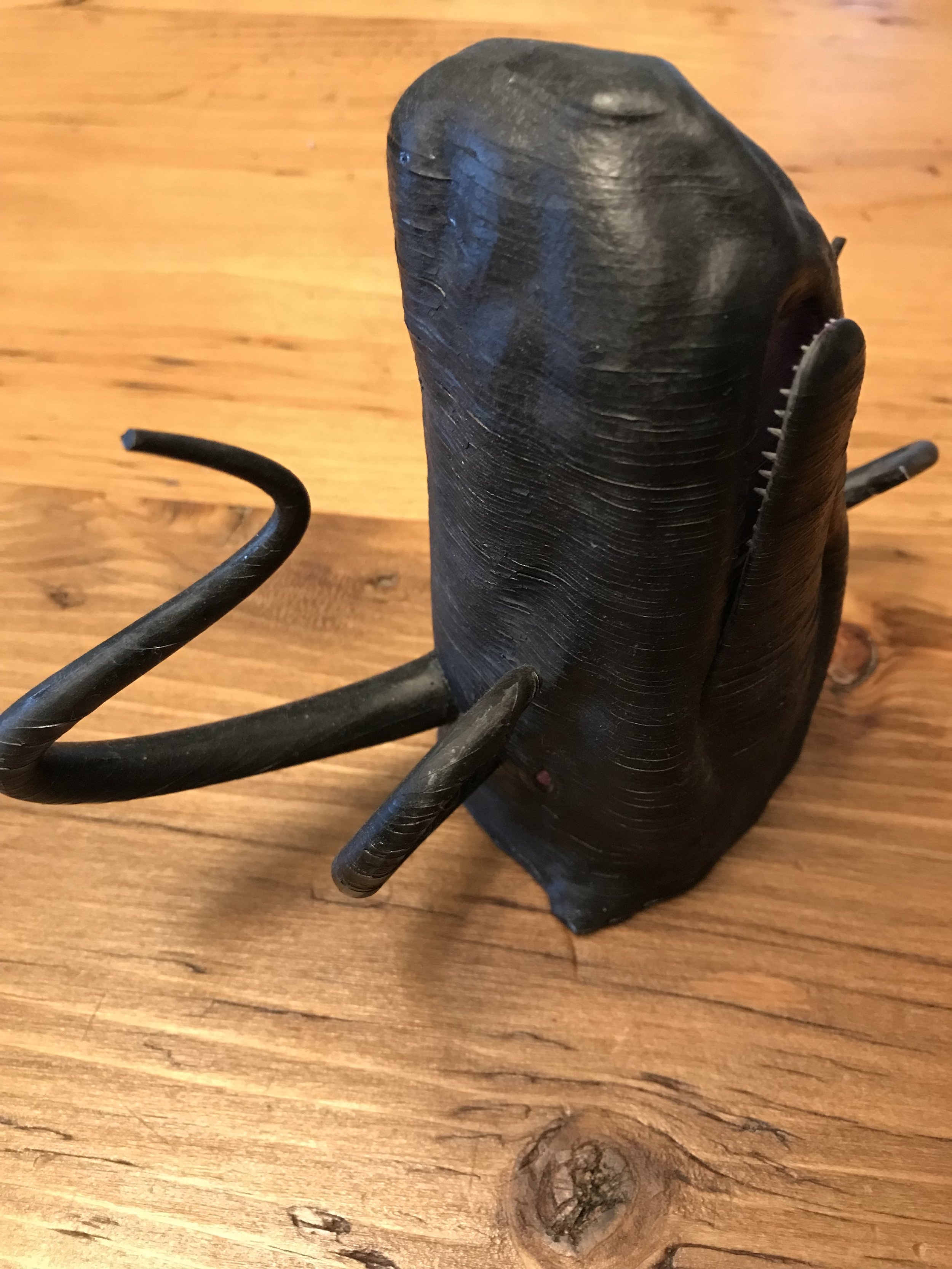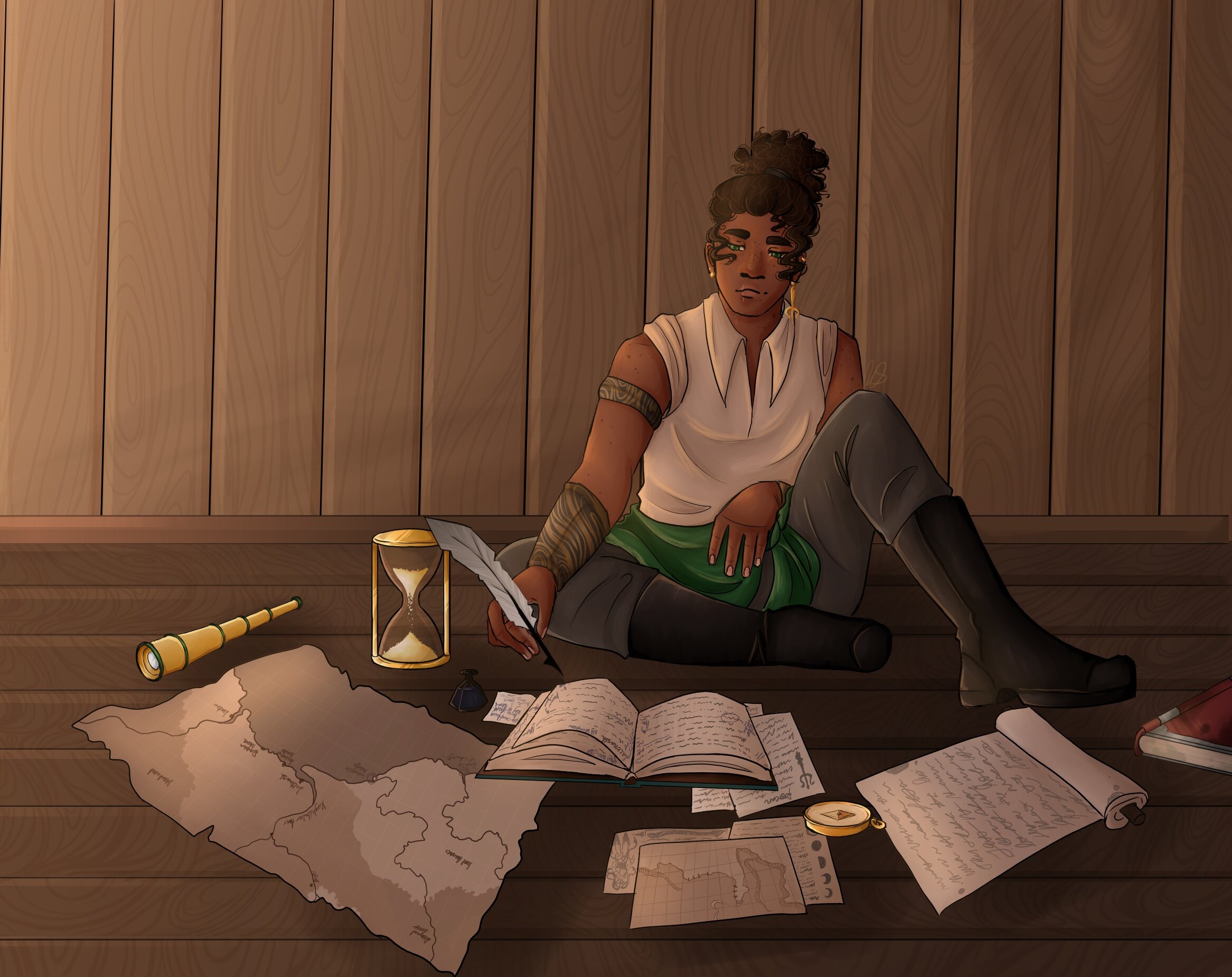Character Build for Ghosts of Saltmarsh (or Any Sea-Based Adventures)
This is not a cheat sheet for making characters that can beat the challenges of Ghosts of Saltmarsh. This is a look at what you can do to make a character that can thrive in the unique environment of a sea-based adventure. These lessons are good for any 5e Dungeons & Dragons adventure that is going to spend time on the water and not just for Ghosts of Saltmarsh.
Two Challenges
There are two things that you need to be aware of and these are Swim Speed and Drowning. At some point, you will be in the water, whether it is by choice or accident. You will need to know what your character can do and how to survive when in the water.
In 5e having a Swim Speed means that you take actions as normal. Any character can swim (if they are not encumbered or have made the choice to not know how to swim), but it costs two feet of movement for every one foot moved. Most weapons are not effective in underwater combat and will cause the character to have disadvantage when in combat. A Swim Speed will make your character more effective in combat or at least have the ability to get away if they need to. You can gain a swim speed either from a racial ability or from a class feature. There are also magic items that can grant a swim speed, if your DM allows you to buy magic items then this is another way to address this issue.
Drowning is covered in the suffocation rules. A character can hold their breath for one minute plus additional minutes equal to their Constitution bonus (for a minimum of 30 seconds) and then they will start to suffocate/drown. Once the character runs out of breath, they will need to take a breath within a number of rounds equal to their Constitution bonus (minimum of 1 round) or they drop to 0 hit points and are dying. There are several ways around not being able to breathe underwater. Some races either have water breathing or can hold their breath for extremely long intervals. There is the third level spell Water Breathing, which is non-concentration, can be cast as a ritual, affects ten characters, and lasts 24 hours.
Races to Pick
Of all the races the only one I would suggest not picking is the Centaur. Having a horse body on a sailing ship seems to be a detriment, but I would not say no to a player that wanted to play one. For myself, I would be tempted to choose the Sea Elf or Triton because you have so few opportunities to play either of these races effectively in other settings. Older versions of D&D used to put severe limitations on being a sea-based race in a non-sea-based adventure. Those detriments are gone, but the special abilities of Sea Elf and Triton are more effective if the character is near, in, or on water.
There are other races that give you abilities that are useful in a water-based campaign. Water Genasi have a swim speed and can breathe underwater; Air Genasi do not need to breathe; Tortles can hold their breath for up to an hour.
Don’t only think about the races that are sea-based. There are racial abilities that can be helpful that don’t include swimming or breathing underwater. For instance, Tabaxi have a climbing speed which would be useful in the rigging of a ship. Kobolds and High Elves can pick up a cantrip like mending which is useful for repairing minor damage to any ship you are on.
Classes to Pick
The swimming and breathing issues can be fixed through classes as well. Rangers get access to a swim speed if they take Deft Explorer from Tasha’s Cauldron of Everything. They do have to wait until sixth level for the Roving feature to come online, but it is an option. Warlock, with the Fathomless patron, get both a swim speed and breathing underwater. The Eldritch Invocation of Gift of the Depths can also handle both issues while also giving the Warlock the water breathing spell use without expending a spell slot which is available at fifth level. Druids have wildshape which can allow them to take the form of a beast with a swim speed when they reach fourth level.
There are the spells that can help like water breathing which is available to the Artificer, Druid, Ranger, Sorcerer, and Wizard. Water walk is another option available to Artificers, Clerics, Druids, Rangers, and Sorcerers. I had one character that used spider climb to keep his character rooted to the sea floor or flooded dungeon floor which allowed him to use his normal walking speed. The Sorcerer in the party used her water breathing spell and now both issues were solved. Of course, as DM, I did not create large cavernous rooms and place the enemies in the middle out of his maul’s reach.
The Mechanics of it All
It is important that characters know how to sail, navigate, and repair ships. If you don’t know how to do any of these things, then you at least need to be very perceptive so that you can hang out in the crow’s nest and look for trouble.
A Strength-based character is going to find plenty to do while the party is sailing across the sea. Characters with high Perception are going to be able to spot dangers before it is too late. A climbing speed can be helpful for making your way in the rigging of the ship.
Armor is something you need to be cognizant of since, as I mentioned before, you will end up in the water whether you want to or not. If you are wearing metal armor, then you are going to sink and sink fast. There are several ways to get a good armor class without having to don plate mail. A shield is a good option that can be dropped instead of weighing down the character if they fall into the water. Several character classes have non-armor options to make your character as protected as a fighter in medium armor.
The Town of Saltmarsh (or Whatever Port City is the Focus of the Campaign)
Get invested in Saltmarsh. Most, if not all, of your downtime will be spent in the town. Discuss with your DM about your living arrangements and which building on the map is where you live.
If you are a Bard, then find out where the inns and taverns are that you can play. If you play a cleric, then learn which gods have a temple in the town and make them your patron. The town is not a static background but can be a living and breathing environment. The characters in your party can have an effect on how the town changes throughout the campaign.
There are several NPCs that the players can have connections with and they can either help or hinder them on their adventures. Know who owns the local general store, figure out where you can get hired for jobs, and know who are the leaders of the town.
Where You Came From
There are several good options that can be selected for Backgrounds for your character in a water-based campaign. Fisher, Marine, Shipwright, Smuggler, and Sailor (Pirate), are all natural fits, but don’t ignore the other options. The Urchin is going to know the ins and outs of the town, the Folk Hero is never going to pay for their own drinks, and the Entertainer will be able to find paying gigs (when they aren’t earning treasure bashing in the heads of monsters from out of the deep). Just like you want to have a myriad of classes and races, your party will want just as diverse backgrounds.
Think outside the box to resolve the inherent problems of a sea-based campaign. One character is not going to be able to sail a ship, repair it, navigate troubled waters, have a swim speed, and breathe underwater, but a party can cover all those bases and help each other survive the sea.













